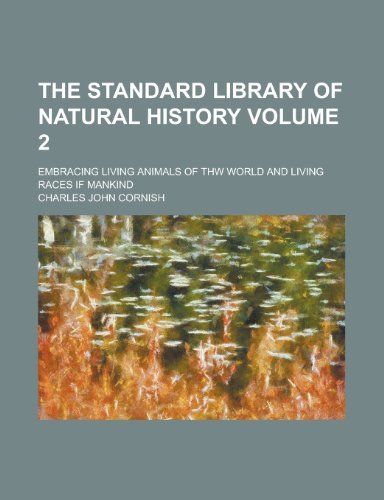
The Standard Library of Natural History; Embracing Living Animals of Thw World and Living Races If Mankind Volume 2
This historic book may have numerous typos and missing text. Purchasers can usually download a free scanned copy of the original book (without typos) from the publisher. Not indexed. Not illustrated. 1908 edition. Excerpt: ...animal. The head, with no externally visible ears and remarkable elongated beak-like snout, however, at once proclaims it to be altogether distinct from these. The animal has no teeth, and the tiny mouth at the termination of the beak-like snout simply constitutes an aperture for the extrusion of the worm-like glutinous tongue, wherewith, after the manner of the true ant-eaters, it licks up the inhabitants of the ants' nests upon which it feeds. For tearing down the ants' nests and obtaining its customary food, as also for its inveterate burrowing propensity, the feet, and more especially the front ones, are provided with strong, blunt, and very powerful claws. The male animal is in addition armed on the hind feet with a peculiar supplementary spur, which is, however, still more conspicuously developed in the platypus. Three distinct species of the echidna are recognized by zoologists. The one peculiar to the cooler climate of Tasmania is remarkable for its more slender spines, the much greater abundance of the long bristle-like hairs, and the thickness of the seal-brown under-fur, as compared with the typical Australian form. In North-west New Guinea the largest and most aberrant form is met with. Normally it has only three toes in place of five to each foot, the spines are very long and thick, the body is deeper and more compressed, and the animal stands comparatively high upon its feet. The writer, during his residence in Tasmania, had several examples of the local species as domestic pets. For the first few days they were very shy and untractable, burrowing into the earth and seeking to escape, or presenting an impenetrable cheval de /rite of sharppointed spines to the hands that sought to caress them. After a short interval, however, ...